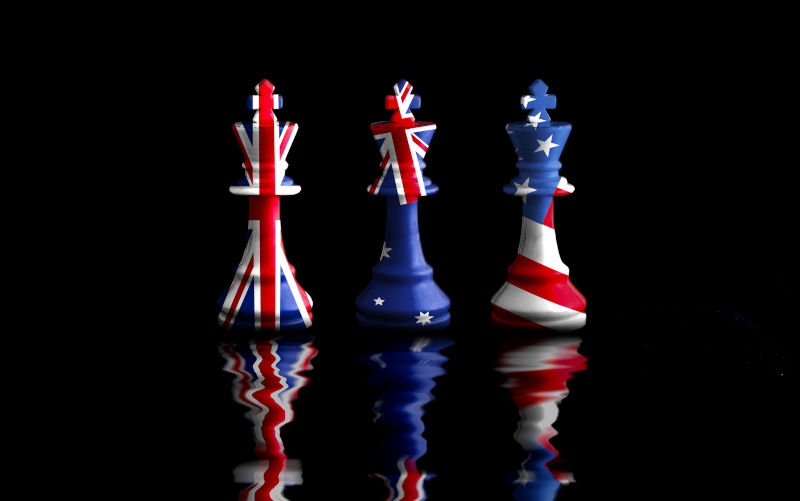The National Defence Strategy - a fatal fault line in Australia’s security
April 20, 2024
Last Wednesday Defence Minister Richard Marles blustered his way through a speech and Q&A at the National Press Club. He presented the National Defence Strategy (NDS) to the nation - a document laden with the jargon of new defence priorities, AUKUS and a plan for our military to ‘project power’.
The publicity pitch laid it out like this:
“The NDS sets out the Government’s approach to address Australia’s most significant strategic risks based on the concept of National Defence.
The adoption of National Defence will see a Strategy of Denial become the cornerstone of Defence planning and means the Australian Defence Force (ADF) will transition to an integrated, focused force.
Together, the NDS and IIP provide a blueprint to deliver an ambitious transformation of the ADF to ensure it is positioned to safeguard Australia’s security and contribute to regional peace and prosperity for decades to come.”
One might be prompted to ask what the ADF has been doing all these years if it is not now an ‘integrated, focused force…positioned to safeguard Australia’s security’. Nothing in the speech inspired confidence that the mooted ‘Strategy of Denial’ would in fact work against the main strategic (read military) threat. This time China has been named.
Predictably, Minister Marles and many in the commentariat were preoccupied with the big budget outlays and the new weapons systems we are zealous about procuring. Important matters, yes, but surely secondary to the big strategic questions underlying the government’s willingness to put defence procurement before sensible statecraft and diplomacy.
I was struck by the mantra the Minister frequently intoned: “The strategic cat we are trying to skin is to resist coercion and maintain our way of life”. Surely that PR line, loaded with assumptions, is worthy of interrogation. For example, China was easily able to ‘coerce’ us by imposing trade sanctions on Australia in 2020 - with plenty of room to really make a difference to our way of life if they chose to go harder. No expanded navy or fresh array of missiles would have prevented that - or could in the future. It is disingenuous to pretend to the Australian people that raising defence expenditure from 2% to 2.4% of GDP over the next decade will stave off the claimed threat to our way of life. Disappointingly, none of the journalists at the NPC saw that issue as worthy of a question.
Even more important was another one-liner that none in the gallery seemed to notice. Early in his speech, Marles said Australia wanted a geo-political situation of “strategic equilibrium where no state was militarily predominant in the Indo-Pacific”. Penny Wong often uses a similar line - but without mentioning the military.
Last week, the prominent US journal Foreign Affairs published an opinion piece by two senior Republican hawks. The article lays out the Republican case rejecting a détente between the US and China - arguing instead for the fantasy of a total ideological victory against China. In the article, titled ‘No Substitute for Victory’, Trump advisors Matt Pottinger and Mike Gallagher put their polemic for confrontation this way:
“For U.S. forces to actually deter China, they need to be able to move within striking range. Given the maritime geography of the Indo-Pacific and the threat that China’s vast missile arsenal poses to U.S. bases, the State Department will need to expand hosting and access agreements with allies and partners to extend the U.S. military’s footprint in the region. The Pentagon, meanwhile, will need to harden U.S. military installations across the region and pre-position critical supplies such as fuel, ammunition, and equipment throughout the Pacific.
…Generations of American leaders understood that it would have been unacceptable for the Cold War to end through war or U.S. capitulation. If the 1970s taught Washington anything, it is that trying to achieve a stable and durable balance of power—a détente— with a powerful and ambitious Leninist dictatorship is also doomed to backfire on the United States. The best strategy, which found its ultimate synthesis in the Reagan years, was to convince the Soviets that they were on a path to lose, which in turn fuelled doubts about their whole system.”
This is scary stuff, and not just in the event that Trump wins. The thread of that Cold War thinking already drives US foreign policy, precisely because the Americans believe they should maintain their military dominance in the Indo-Pacific. Even Bill Clinton has said that America will one day have to get used to sharing power with China. That said, US foreign policy demonstrably undercuts Marles’ (and Wong’s) claim that we want ’strategic and military equilibrium’ in our region. Clearly we are supporting the imbalance that the US imposes - and that China so resents and is determined to change. This is the great fault line in Australia’s foreign and defence policy. The glossy National Defence Strategy document devotes a single paragraph to ‘Integrated statecraft’. Lamentable - and dangerous.
Right on cue the former Secretary of the Home Affairs department Mike Pezzullo has called for Australia to adopt a comprehensive national plan for war – a “war book” – to coordinate civil and military roles and “focus the national mind” on the possibility of future conflict. He might have lost his job, but the madness of talking up war with China has clearly infected our polity. He is not alone.
As a long-standing member of the ALP, I am concerned that the Albanese government seems unable to balance a sensible defence policy with the vital national interest that is the peace and prosperity of our region. As former Foreign Minister Bob Carr described our dilemma in January: “It’s not possible to continue to play war games with the Americans and trade games with China and hope to live on in blissful prosperity.”
Pearls & Irritations recommends:
https://publish.pearlsandirritations.com/australians-join-call-for-usa-china-detente/
